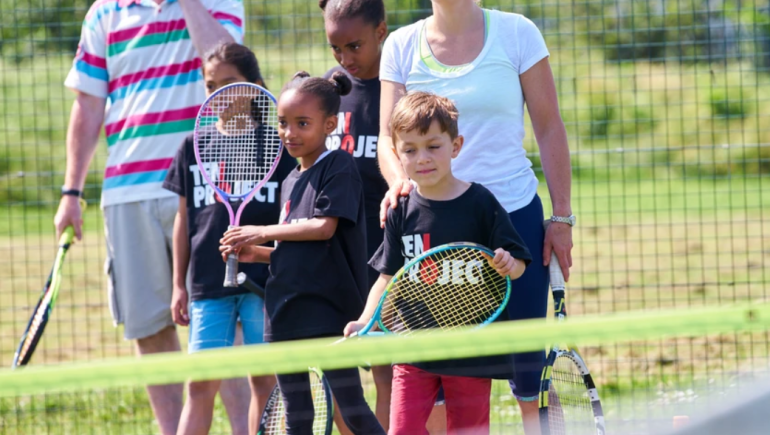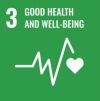For some parents, the cost-of-living crisis has meant they have been forced to work longer hours – meaning they spend less time with their children. Alex Charlton found out about one project which is addressing this growing socio-economic problem.
According to a 2024 YouGov poll reported by UNICEF UK, 82% of parents with children under five reported working long hours. Furthermore, 66% of parents said the rising cost of living negatively impacted their family life, while 43% reported cutting back on playgroups and sporting activities.
One initiative which is striving to address this issue is the Ten Project, which is aimed at getting families to spend more time together while being active. Significantly, sessions are free and take place over weekends, meaning families are offered the opportunity to develop connections through tennis.
FAMILIES
Harry Lloyd created the Ten Project in 2018 with the vision of rebuilding connections within families through sport. He recognises that opportunities for free sport are few and far between these days.
“At the moment, there are so many barriers,” said Harry. “They are all down to circumstance. Society tends to quickly tell you what you can and can’t do. Whether it’s parental circumstances or affordability, the reality is people are struggling to access sport.
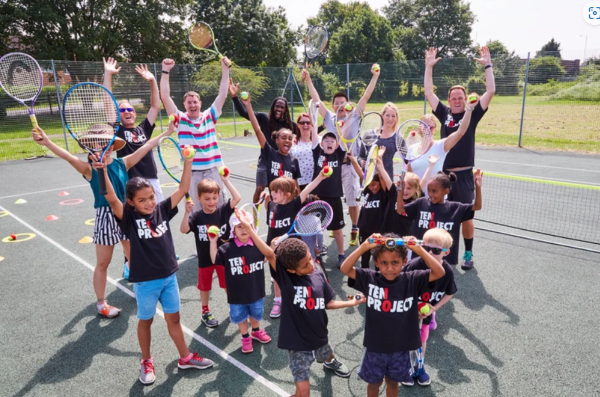
“Ten Project is essentially about providing opportunities that aren't there for children and families. Tennis is a sport that is getting a lot better, but certainly for a long while, was deemed fairly elitist in terms of cost and who took part in it.”
Ten Project targets primary school children by delivering a term of tennis as part of the national curriculum. The project is usually delivered to children in Key Stage 1 and 2 and at no extra cost to the school as it comes out of the school’s PE budget. Furthermore, the initiative allows teachers to work alongside coaches, which provides them with valuable career development.
OPPORTUNITY
Harry understands that working with schoolchildren is the best way to get children interested in being active. “If children are attending school, they have to take part,” he continued. “We don't market Ten Project as extra-curricular - it's not an after-school club. We want every child to have this opportunity and that’s what is key to this.”
School sessions are supplemented by free sessions on weekends, where children are invited to bring the whole family to build vital connections. “Whether it’s siblings, parents or grandparents, it’s about getting them active and playing together,” Harry continues.
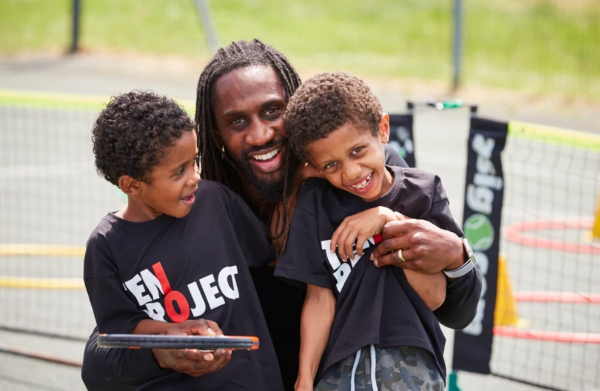
“The idea is that for every hour the child does in school, they also have the opportunity to come with their wider family for another hour to their local community court to play. What we find is, the more schools we go into, the more children we teach within school, the more families we can persuade to come to Ten Project on the weekend
“At the end of the 10-week initiative, we have a bunch of parents that would never have even thought about stepping foot on a tennis court or wanting to carry on that activity within their local community!
COMMUNITY
“The dynamic of our weekend sessions is that parents play with their children. To see that manifest itself in week one and go, ‘You know what? Actually, parents will play with their children’. As long as it's done in the right manner, which is completely fun, you realise that you have created something that works.”
While primary schools are where Ten Project gets most of its participants, Harry emphasises that it is open to anyone in the community. “Free community family sessions don't just become available to primary schoolchildren who are taking part,” Harry adds. “They are open to anyone within that community to come and play for fun in an informal environment. All equipment is there, it's all free, and that's crucial for us.”
For projects like this to be a success, they need to be sustainable and physical activity cannot stop after 10 weeks. Harry explains the pathway that Ten Project creates for its families.
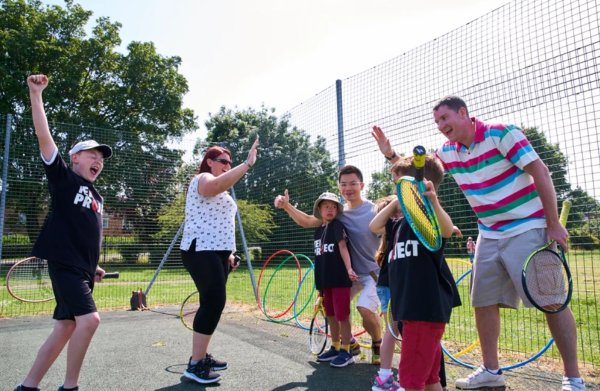
“Families who started coming on a weekend have continued to come back for three or four years, so that’s amazing,” Harry continued. “They clearly love it. You've got parents who have reignited a passion for sport, who have joined their local tennis club and started doing cardio tennis or beginner lessons. A win for us is parents and children carrying on playing, and a huge win is them seeking out and carrying on their tennis journey however they want.”
Ten Project has grown from its roots in South-West London and has expanded as far as Leeds and Eastbourne. Furthermore, the project also runs sessions for children with disabilities. Harry is adamant that the project will remain free and available to those interested in bonding as a family.
To find out more, visit tenproject.org.uk

